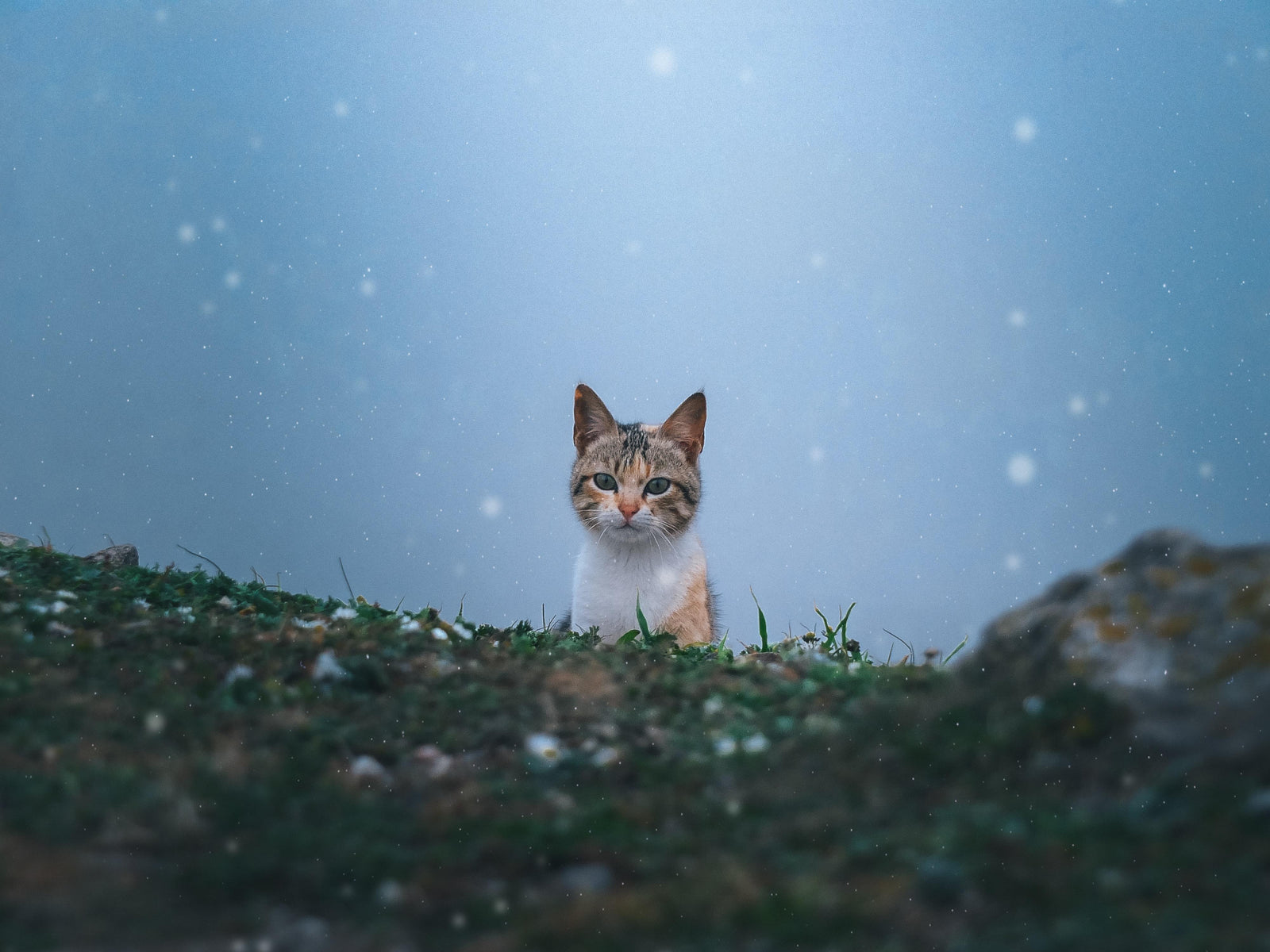
Throughouthiss-tory, feline lore haspurr-petuatedmany myths about our four-legged friends and their mortality. We’ve all heard the fantastical claims that “cats have nine lives”* but just like us (and every other creature on the planet) they only get one life to live. So how long is the average cat’s lifespan? What can we do to help them live longer?
*seven lives in Hispanic and Latinx cultures & six lives according to Arab and Turkish legends
At Pretty Litter, we offer a health monitoring cat litter as well as a cat litter subscription. Our experts here at PrettyLitter cross-examined the various factors that contribute to average feline lifespans and put together a comprehensive guide so you can better understand how to help our furry friends live long and happy lives.
The Six Key Life Stages
- Kitten: up to 6 months
- Junior: 6 months to 2 years
- Prime: 3 to 6 years
- Mature: 7 to 10 years
- Senior: 11 to 14 years
- Geriatric: 15 years and up
Indoor v. Outdoor Cats
In a world filled with indoor, outdoor, and indoor/outdoor cats, there is a striking difference between the lifespans of those that live inside versus those that live outside. On average, indoor cats live anywhere between 10 to 15 years. No matter if they're a purebred or mixed breed, many cats actually end up living well into their 20s. Whereas outdoor cats, on average, only live between 2 to 5 years. This drop in longevity can be explained by the many, dangerous factors from the outside that outdoor cats experience daily. These include but aren’t limited to:
- Traffic
- Getting lost
- Getting taken by Animal Control (or others)
- Predators
- Parasites and diseases
- Environmental hazards
Because they aren’t exposed to the same outdoor risks, indoor cats have longer life spans due to being sheltered inside with controlled diets, routine medical care, comfort, and exercise.

Life Expectancy Factors
- Veterinary care
- Since it's impossible to read your cat’s mind and they likely won’t be able to tell you when something is wrong, vets provide important care to ensure they stay happy and healthy. Important health procedures they can provide you cat include vaccinations, annual check-ups and other preventative measures like spaying and neutering.
- Spayed/neutered cats tend to live longer!
- They have less risk of reproductive diseases and roam less.
- Diet
- An ideal cat diet consists of moisture-rich, protein, and water.
- Cats need more protein in their diet daily than dogs do!
- The average 8-pound cat needs to eat at least 20 grams of protein a day.
- They need to get their protein from meat, poultry, and fish sources.
- Adult cats cannot digest large amounts of carbohydrates or lactose!
- Carbohydrates can actually decrease the amount of protein they’re able to digest.
- Exercise
- Some cats get a bad rep for being lazy. How do you make sure your cat gets the necessary exercise it needs to live a healthy life? Simple, playtime and toys!
- Playing with your cat can stimulate their natural instinct to hunt, pounce, and play. Try these kitty toys to keep them energetic and nimble:
- Laser pointers
- Feather wands
- Battery-operated rolling toys
- Toy mice
- Cat treadmills and wheels
- Corks from bottles
- Old boxes and paper bags
- Boredom prevention
- Playtime is obviously very important to preventing kitty boredom. Here are some more ways to keep your cat stimulated:
- Providing multiple places for them to climb and explore
- Cat towers and wall mounts
- Scratching posts
- Daily interaction and love
- Introducing new toys
Tired of your home smelling like you have a cat?
15% off PrettyLitter
Try it today Use code: PRETTYBLOG
The World’s Oldest Cat!
In 2010, the Guinness Book of World Records announced that a domestic shorthair from Austin, TX named Crème Puff was the world’s oldest cat. She was born on August 3rd, 1967, and lived until August 6th, 2005 to a ripe old age of 38 years and 3 days old. Her owner, Jake Perry, stated that he would feed her an unusual diet that consisted of things like asparagus, broccoli, eggs, turkey bacon, coffee, and cream. He would also give her an eyedropper of red wine every two days and claimed that this is what caused her longevity because the wine “circulated” her arteries. Perry was also the owner of the last cat who held this title: Grandpa Rex Allen, who lived to be 34 years and 2 months old. He kept his cats very active at home by building a screened enclosure in his backyard and even converting his garage into a movie theater that would play nature documentaries for his cats!
Life Expectancy of Popular Breeds
It just goes to show that a loving and active homelife can be very beneficial for your cat’s lifespan and longevity! Interested in being a cat owner and bringing a new cat into your life? Curious about your cat? Take a look into our breed guide. Check out the list below of the average life expectancies for popular breeds!
- American Shorthair: 15 to 20 years
- Bengal: 14 to 16 years
- Burmese: 16 to 18 years
- Calico: 12 to 15 years
- Maine Coon: 10 to 13 years
- Manx: 8 to 14 years
- Munchkin: 12 to 15 years
- Persian: 10 to 17 years
- Ragdoll: 15 to 18 years
- Russian Blue: 15 to 20 years
- Savannah: 12 to 20 years
- Siamese: 12 to 20 years
- Sphynx: 10 to 15 years
Sources:
1. https://www.catster.com/cat-health-care/how-long-do-cats-live-cat-health-facts
2. https://www.thevetonfourth.com/how-long-do-indoor-cats-live/
3. https://pets.webmd.com/cats/features/should-you-have-an-indoor-cat-or-an-outdoor-cat#1

Follow Us